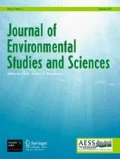Abstract
Citizen engagement in policymaking represents an increasingly popular mechanism for both civic rejuvenation and environmental policy innovation. Its application in many different policy fora from city budgeting to housing and energy systems across various national contexts provides, in theory, space for the public to feel empowered, connected to new policy spaces and positions them to aid in design and implementation of more effective solutions to complex social and environmental problems. This engagement takes many different forms, including deliberative polling, citizen’s assemblies, online referenda and creation of community-based ownership. However, various forms of engagement are also accompanied by challenges of poor design and limited local capacity that can undermine their effectiveness and, ultimately, public confidence in government actors and processes. This article challenges renewable energy advocates to consider more serious insights from political and institutional theorists about the complexities of participatory designs. It draws on three initiatives in Canada and Denmark to illustrate both the promise and the challenge of public engagement in this significant policy subsector.
Similar content being viewed by others
Notes
Combined heat and power is a system where the heat emitted from electricity generation is captured and used, rather than wasted. This heat can be used by the generation facility for its own purposes or be integrated within a larger area as part of a ‘district heating’ system, where centrally produced heat (geothermal, solar, heat pumps, thermal power generation) is circulated through a local area to be used for space and water heating. This system typically results in significantly reduced greenhouse gas emissions, cost savings and resource consumption when compared with business as usual scenarios.
References
Arnstein SR (1969) A ladder of citizen participation. J Am Inst Plann 35(4):216–224
Baber WF, Bartlett RV (2005) Deliberative environmental politics. MIT Press, Cambridge, MA
Baker S (2014) Governance. In: Death C (ed) Critical environmental politics. Routledge, New York
Barnosky AD, Hadly EA, Bascompte J, Berlow EL, Brown JH, Fortelius M, Smith AB (2012) Approaching a state shift in Earth’s biosphere. Nature 486:52–58
Barry J (2012) The politics of actually existing unsustainability: human flourishing in a climate-changed carbon constrained world. Oxford University Press, New York
Barry J, Ellis G, Robinson C (2008) Cool rationalities and hot air: a rhetorical approach to understanding debates on renewable energy. Global Environmental Politics 8(2):67–98
Bättig MB, Bernauer T (2009) National institutions and global public goods: are democracies more cooperative in climate change policy? Int Organ 63(02):281–308
Bjurström A, Polk M (2011) Physical and economic bias in climate change research: a scientometric study of IPCC Third Assessment Report. Clim Change 108(1–2):1–22
CCPA, Parkland Institute, & Polaris Institute. (2006). Fuelling fortress America: a report on the Athabasca Tar Sands and U.S. demands for Canada's energy. Ottawa: Retrieved from www.policyalternatives.ca
Copenhagen Energy and Environment Office. (2003). Middelgrunden: a popular idea. Copenhagen: CEEO.Retrieved from http://www.ontario-sea.org/Storage/29/2118_doc1.pdf
Danish Energy Agency. (2013). Key figures. Retrieved November 10, 2013, from http://www.ens.dk/en/info/facts-figures/key-figures/danish-key-figures
Devine-Wright P (ed) (2011) Renewable energy and the public: from NIMBY to participation. Earthscan, London
Dobson A (2005) Ecological citizenship. In: Dryzek J, Schlosberg D (eds) Debating the earth: the environmental politics reader. Oxford University Press, London
Dobson A, Catney P, Macgregor S, Hall SM, Royston S, Robinson Z, Ross S (2013) Community knowledge networks: an action-orientated approach to energy research. Local Environ 18(4):506–520
Doern B, Gattinger M (2003) Power switch: energy regulatory governance in the twenty-first century. University of Toronto Press, Toronto
Doern GB (ed) (2007) Innovation, science and environment: policies and performance. McGill and Queen’s University Press, Montreal and Kingston
Dryzek JS (1992) Ecology and discursive democracy: beyond liberal capitalism and the administrative state. Capital Nat Social 3(2):18–42
Dryzek JS (2002) Deliberative democracy and beyond [electronic book]: liberals. Oxford University Press, Oxford
Faber D (2008) Capitalizing on environmental injustice: the polluter-industrial complex in the age of globalization. Rowman & Littlefield, Lanham, MD
Fiorino DJ (1990) Citizen participation and environmental risk: a survey of institutional mechanisms. Sci technol hum values 15(2):226–243
Fischer F (1993) Citizen participation and the democratization of policy expertise: from theoretical inquiry to practical cases. Policy Sci 26(3):165–187
Forsyth T (2013) Critical political ecology: the politics of environmental science. Routledge, New York
Fung A (2006) Varieties of participation in complex governance. Public Adm Rev 2006:66–75
Gervitz, G. and Lipp, J. (2005) Community power Canadian Style: Windshare and the Toronto renewable energy co-op. REFocus 6(12): 6. doi:10.1016/S1471-0846(05)00290-8
Giddens A (2009) The politics of climate change. Polity Press, Cambridge
Gipe, P. (2007). Renewables without limits. Retrieved from www.ontario- sea.org/pdf/RenewablesWithoutLimits.pdf, 14Jan07
Gipe, P. (2010). Provincial feed-in tariffs spurring community power. Retrieved from http://www.wind-works.org/FeedLaws/Canada/CanadaFITsSpurringCommunityPower.html
Gipe, P. (2013, June 10, 2013). Two steps forward, one back: Ontario cancels feed-in tariffs for large projects, Renewable Energy World. Retrieved from http://www.renewableenergyworld.com/rea/news/article/2013/06/two-steps-forward-one-back-ontario-cancels-feed-in-tariffs-for-large-projects
Haas P (2004) When does power listen to truth? A constructivist approach to the policy process. Journal of European public policy 11(4):569–592
Hoffman SM, High-Pippert A (2009) Community energy: a social architecture for an alternative energy future. Bull Sci Technol Soc 25(5)
Howlett M, Ramesh M, Perl A (2003) Studying public policy, policy cycles and policy subsystems, 2nd edn. Oxford University Press, Don Mills
International Energy Agency. (2012). Denmark 2011 review. Retrieved from http://www.iea.org/publications/freepublications/publication/Denmark2011_unsecured.pdf
International Energy Agency. (2013). CO2 emissions from fossil fuel combustion. IEA.Retrieved from http://www.iea.org/publications/freepublications/publication/CO2EmissionsFromFuelCombustionHighlights2013.pdf
IPCC. (2014). Climate Change 2014: mitigation of climate change. Retrieved from http://mitigation2014.org/report
Jaccard M, Simpson J (2007) Hot air: meeting Canada’s climate change challenges. McCLelland & Stewart, Toronto
Johnson GF (2009) Deliberative democratic practices in Canada: an analysis of institutional empowerment in three cases. Canadian Journal of Political Science 42(3):679–703
Johnson GF (2011) The limits of deliberative democracy and empowerment: elite motivation in three Canadian cases. Canadian Journal of Political Science 44(1):137–159
Kaswan A (2009) Greening the grid and climate justice. Environmental Law 39:1143
Larsen JHM, Sorensen HC, Vikkelso A (2003) The Middelgrunden offshore windfarm: a popular initiative. Copenhagen Environment and Energy Office (CEEO), Copenhagen, DK, Retrieved from http://www.middelgrunden.dk/middelgrunden/sites/default/files/public/file/mg-pjece_72dpi_rgb.pdf
Lascoumes P, Galés PL (2007) Understanding public policy through its instruments—from the nature of instruments to the sociology of public policy instrumentation. Governance 20(1):1–22
Loorbach D (2010) Transition management for sustainable development: a prescriptive, complexity‐based governance framework. Governance 23(1):161–183
MacArthur, J. (2012). Community empowerment: TREC, cooperatives and the future of renewable electricity in Canada. i4 ejournal Canadian Centre for Community Renewal, Port Alberni, BC (May 22)
MacArthur JL (2014) Sustainability and the social economy in Canada: from resource reliance to resilience? In: Fitzpatrick T (ed) International handbook of environment and social policy. Edward Elgar, London, pp 274–299
Macdonald D (2009) The failure of Canadian climate change policy: veto power, absent leadership and institutional weakness. In: VanNijnatten D, Boardman R (eds) Canadian environmental policy and politics. University of Toronto Press, Toronto
Meadowcroft J (2011) Engaging with the politics of sustainability transitions. Environmental Innovation and Societal Transitions 1(1):70–75
Miller CA, Edwards P N (2001) Changing the atmosphere: expert knowledge and environmental governance. MIT Press, Cambridge
Murphy R, Murphy M (2012) The tragedy of the atmospheric commons: discounting future costs and risks in pursuit of immediate fossil-fuel benefits. Can Rev Sociol 49(3):247–270
Nova Scotia Power. (2013). How we make our power. Retrieved from https://www.nspower.ca/en/home/about-us/how-we-make-electricity/thermal-electricity/default.aspx
Ostrom E (1990) Governing the commons: the evolution of institutions for collective action. Cambridge University Press, Cambridge MA
Pal LA (2010) Beyond policy analysis: public issue management in turbulent times, 4th edn. Nelson Education Ltd., Toronto
Park J, Conca K, Finger M (2008) The crisis of global environmental governance: towards a new political economy of sustainability. Routledge, New York
Pateman C (1970) Participation and democratic theory. Cambridge University Press, London
Princen T, Maniates M, Conca K (eds) (2002) Confronting consumption. MIT Press, Princeton, MA
Reed MS (2008) Stakeholder participation for environmental management: a literature review. Biol Conserv 141(10):2417–2431
Rees W (2012) The way forward: survival 2100. Survival 3:3
REN21. (2014). Global Status Report. Paris: Renewable Energy Policy Network. Retrieved from http://www.ren21.net/
Rotmans J, Kemp R, van Asselt M (2001) More evolution than revolution: transition management in public policy. Foresight: the Journal of Futures Studies, Strategic Thinking and Policy 3(1):15–31
Rowlands IH (2007) The development of renewable electricity policy in the province of Ontario: the influence of timing and ideas. Review of Policy Research 24(3):185–207
Rozema JG, Bond AJ, Cashmore M, Chivers J (2012) An investigation of environmental and sustainability discourses associated with the substantive purposes of environmental assessment. Environ Impact Assess Rev 33(1):80–90
Salamon LM (2002) The tools of government: a guide to the new governance. Oxford University Press, Oxford
Sandberg LA, Sandsberg T (2010) The chilly climates of the global environmental dilemma. Canadian Centre for Policy Alternatives, Ottawa
Sheer H (2007) Energy autonomy. Earthscan, London
Sikor T, Newell P (2014) Globalizing environmental justice? Geoforum 54:151–157
Sørensen HC, Hansen LK, Larsen JHM (2002) Middelgrunden 40 MW offshore wind farm Denmark-lessons learned. Renewable realities–offshore wind technologies, Orkney, UK
Sovacool BK, Mukherjee I, Drupady IM, D'Agostino AL (2011) Evaluating energy security performance from 1990 to 2010 for eighteen countries. Energy 36
Speth JG (2008) The bridge at the edge of the world: capitalism, the environment, and crossing from crisis to sustainability. Yale University Press, New Haven, CT
Stephenson J, Barton B, Carrington G, Gnoth D, Lawson R, Thorsnes P (2010) Energy cultures: a framework for understanding energy behaviours. Energy Policy 38(10):6120–6129
Stern NNH (2007) The economics of climate change: the Stern review. Cambridge University Press, Cambridge
Stirling A (2014) Transforming power: social science and the politics of energy choices. Energy Research & Social Science 1:83–95
Stocker TF, Qin D, Plattner G-K, Tignor M, Allen SK, Boschung J, Midgley PM (2013) Climate change 2013. The physical science basis. Working group I contribution to the fifth assessment report of the intergovernmental panel on climate change-abstract for decision-makers. Groupe d'experts intergouvernemental sur l'evolution du climat/Intergovernmental Panel on Climate Change-IPCC, C/O World Meteorological Organization, 7bis Avenue de la Paix, CP 2300 CH-1211 Geneva 2 (Switzerland)
Stokes L (2013) The politics of renewable energy policies: the case of feed-in tariffs in Ontario, Canada. Energy Policy 56:490–500
Sweet, B. (2013). Global CO2 concentration reaches 400 parts per million. Retrieved May 14, 2013, from http://spectrum.ieee.org/energywise/energy/environment/global-co2-reaches-400-ppm
Walker G, Hunter S, Devine-Wright P, Evans B, Fay H (2007) Harnessing community energies: explaining and evaluating community-based localism in renewable energy policy in the UK. Global Environmental Politics 7(2):64–82
Author information
Authors and Affiliations
Corresponding author
Additional information
This article originated from an intellectually stimulating 2-day symposium in 2014 organized by Professor Priya Kurian and Professor Debashish Munshi on controversial science and technology at the University of Waikato. The author would like to thank them for organizing the event and to thank the anonymous reviewers for their constructive feedback and careful reading of the manuscript.
Rights and permissions
About this article
Cite this article
MacArthur, J.L. Challenging public engagement: participation, deliberation and power in renewable energy policy. J Environ Stud Sci 6, 631–640 (2016). https://doi.org/10.1007/s13412-015-0328-7
Published:
Issue Date:
DOI: https://doi.org/10.1007/s13412-015-0328-7




